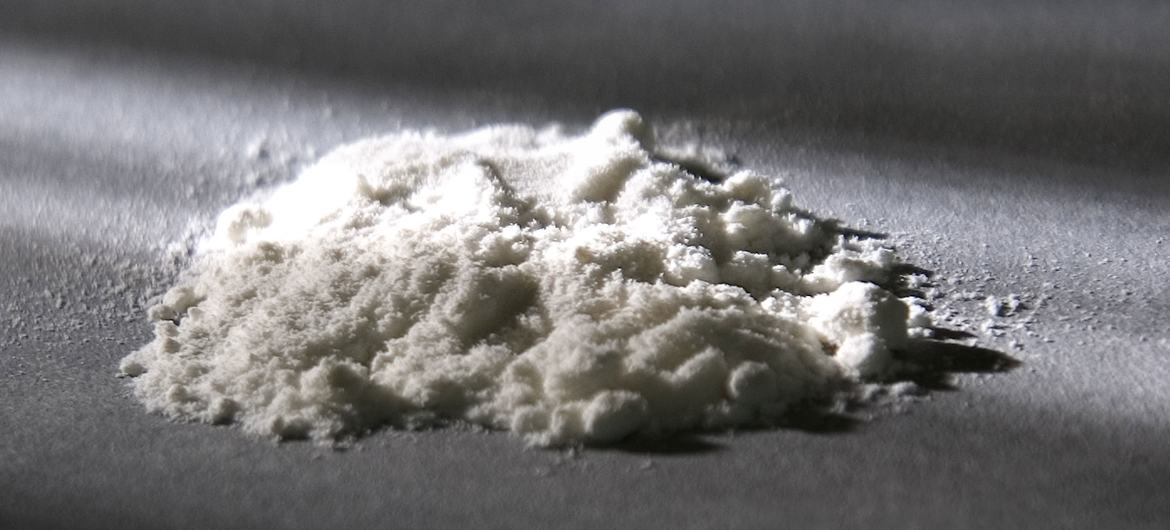Lower costs of cocaine production have led to falling street prices and increased use of the controlled drug, says a flagship report from the UN Office on Drugs and Crime (UNODC), released on Wednesday.
The World Drugs Report also includes data on the impacts of cannabis legalization and advocates for an approach to drug use that lays an emphasis on human rights.
Angela Me, head of social affairs at UNODC, sat down with Conor Lennon from UN News to discuss some of the study’s main findings.
UN News: What does the report have to say about the impacts of cannabis legalization?
Angela Me: There are still many gaps, in terms of date, and the impact is very context-specific. But what is clear is that, in the U.S and Canada, legalisation has increased harmful uses of cannabis, and that more people are using it more frequently. This means more people seeking treatment for drug-related issues, and some studies are showing that there are more mental health issues relating to attempted suicide, suicide or psychosis.
UN News: Advocates of legalisation say that one benefit is a reduction in the backlog of cases in the criminal justice system, because people would no longer be criminalised for handling, for example, a small quantity of drugs. Are you seeing that correlation?
Angela Me: In North America, for example, it’s true that where cannabis was legalized, the rate of arrest for cannabis went down. But it’s interesting also to note that the racial disparities that many people wanted to eliminate didn’t really happen. The impact is not always either positive or negative.
There needs to be a good balance between the use of drugs for scientific and medical purposes and ensuring that the drugs are not completely uncontrolled, in a way that they can protect public health because, as we know, controlled drugs have very important health consequences when they are used particularly often.
UN News: Another controlled substance, cocaine, has seen a big rise, along with synthetic drugs such as meth. What reasons does the report attribute to this increase?
Angela Me: The market has suddenly changed, in terms of supply and demand. It started with a shift in the European criminal landscape. Before, Italian groups had almost a monopoly, but this was broken by new groups, particularly from the Balkans. These groups started to gain the trust of Mexican and Colombian suppliers and, with competition, the price went down. This triggered more availability in Europe and increased demand.
As for the supply side, the Colombian peace process with the FARC changed the way groups in that country operated, and many more groups entered that market. And there has been an industrialisation of cocaine production, allowing supply to increase.
So now we’re in this kind of vicious cycle, of more supply leading to greater demand and yet more supply.
UN News: Does the UN have a stated opinion on the use of recreational drugs?
Angela Me: The UN’s opinion is based on international drugs conventions. The ultimate goal of the organisation is to protect people’s health. Recreational use, as opposed to medical use, means using certain substances in ways that can be harmful.
If you look at a brain scan of a young person who frequently uses cannabis, for example, you clearly see the impact. We know now that the brain develops until the age of 25. And so, everything that is taken, including cannabis, can damage this development process, with consequences that will be with person for the rest of their life.
UN News: What are the human rights implications of the drugs trade?
Angela Me: The UN wants to ensure those using drugs have access to medical services in a way that protects their privacy and their dignity, and that they are not stigmatised, or discriminated against, because they are drugs users.
We also want to ensure that the criminal justice system respects human rights of perpetrators, to ensure that they have a fair trial, and that the response to the crime is proportional.















